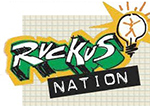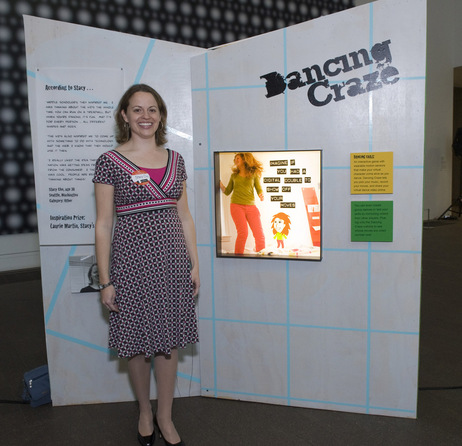Dancing Crazy
Published Jan-09-10Breakthrough:
An interactive video dance game to help combat childhood obesity.
Company:
Stacy Cho, United States
The Story:
 HopeLab is a nonprofit research organization that looks to improve the quality of life of young people with chronic illnesses, and it ventured down the open innovation route when it was looking for new ideas to address the problem of childhood obesity.
HopeLab is a nonprofit research organization that looks to improve the quality of life of young people with chronic illnesses, and it ventured down the open innovation route when it was looking for new ideas to address the problem of childhood obesity.The Ruckus Nation idea competition was launched in September 2007, and was designed to attract a broad and diverse range of ideas. It asked entrants to imagine a new fun product that would be cool enough to make kids want to exercise.
HopeLab felt that open innovation would be a valuable endeavour as it would allow them to harness the power of the global community to develop new products. Children were also invited to take part.
Running an Open Innovation Contest
The technical and organizational complexities of running an international open innovation contest are huge, and so HopeLab collaborated with Idea Crossing who developed a software platform to accomodate their needs.
The contest was open for two months and in that time HopeLab received 429 entries from teams in 37 countries. These were assessed by more than 300 judges from all over the world.
Winning Entry
The Grand Prize Winner was Stacy Cho, a middle school teacher from Seattle. Her winning submission was an interactive video game called “Dancing Crazy” which was designed to get kids off the sofas and exercising.
The innovation in interactive play sees children create a virtual character. Then they strap motion sensors to their body, and as they move the virtual character copies their actions. Users can pick their own music, create their own moves and share the experience online.
The idea came to Cho as she was thinking of video games she wished kids had in their collections, and came up with one that would respond to movements or actions. There are other video dance games on the shelves which have been hailed as tools for fighting obesity, but Cho believes that her game offers something more; principally it is more interactive and responsive to a player's movements.
Prototypes and Testing
Cho sold the rights to her game to HopeLab for $75,000 which represented $50,000 for winning and $25,000 for coming top in her category. Overall the open innovation contest awarded more than $300,000 in cash prizes, and several ideas including Cho’s game were worked into product prototypes for research and user testing. This included assessments of their technical feasibility and potential development costs. Ultimately, the plan is to turn them into consumer products.
Unsurprisingly perhaps, Cho is a big fan of what open innovation can achieve.
"I really liked the idea that Ruckus Nation was getting ideas from the kids, from the consumer,” she said. “I thought that was cool. People are really creative in thinking about things."
Next Story »

